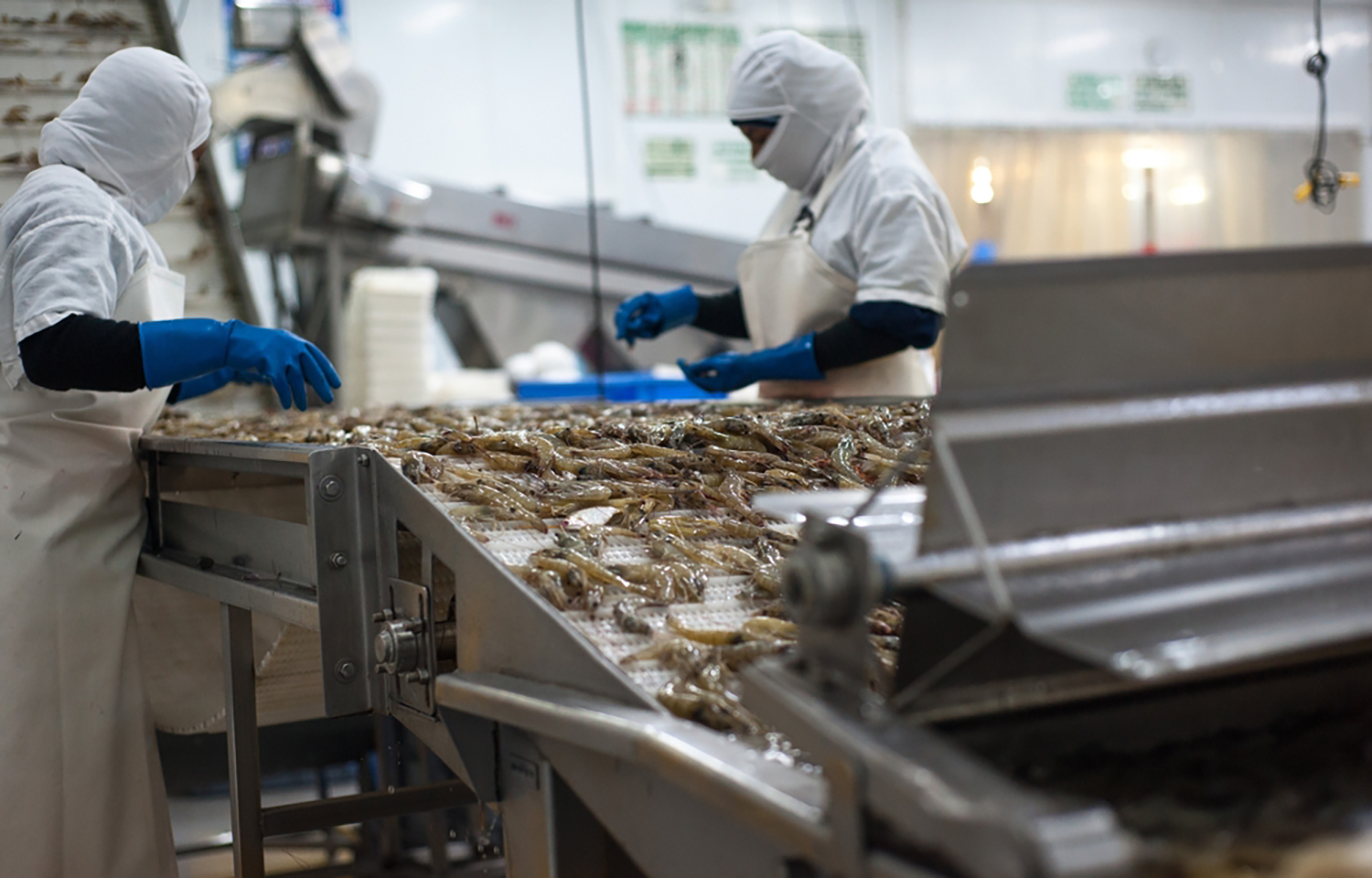Ecuador’s shrimp sector saw its year-over-year exports fall 11 percent in value in February 2024.
The South American country exported USD 453 million (EUR 418 million) in shrimp in February, compared to the USD 509 million (EUR 470 million) it sent abroad in the same month of 2023. In volume terms, it exported 201.5 million pounds in February, just 2.2 percent down from the 206 million pounds it exported during the same month of 2023, indicating a weaker sales price for its top seafood product.
Ecuador’s two main markets for shrimp exports are China and the U.S., which combined accounted for than 70 percent of Ecuador's shrimp sales in February.
Ecuador shipped 102.9 million pounds of shrimp to China during the month, bringing in USD 211.7 million (EUR 195.3 million), down 21.5 percent in volume and 32.3 percent in value year over year. China also purchased just 51.1 percent of the total volume exported, compared to 63.6 percent of the total exported in February 2023.
Ecuador sent 43.3 million pounds of shrimp to the United States in February, garnering USD 117.4 million (EUR 108.3 million), year-over-year increases of 30.3 percent in volume and 26.8 percent and value.
Ecuador also increased its European shrimp exports, sending 39.2 million pounds totaling USD 86.3 million (EUR 79.6 million) to the bloc in February 2024, compared to 31.3 million pounds and USD 77 million (EUR 71 million) exported in the same month of 2023 – a respective increase of 25.3 percent and 12 percent.
Ecuador will have a tougher time exporting its shrimp to the U.S. following the imposition of countervailing duties on 3 April. The U.S. Department of Commerce recently determined all Ecuadorian exporters except for two will face a 7.55 percent countervailing duty on all shrimp exports to the U.S. Sociedad Nacional de Galapagos is facing a 1.69 percent rate and Industrial Pesquera Santa Priscila is facing a duty of 13.41 percent.
The preliminary determination is not final, and the department will not make its final determination until 5 August. However, as the preliminary determination has been sent to the Federal Register, U.S. Customs and Border Protection will now require cash deposits on imported shrimp equal to the preliminary rate.
In addition to facing the increased duties, suppressed international prices, and irregular El Niño-driven weather conditions, Ecuador’s multi-billion-dollar shrimp sector also has to deal with three other obstacles: a proposed increase in taxes, higher logistics costs on the horizon, and sustained crime rates, all of which signal another turbulent year ahead for the industry.








